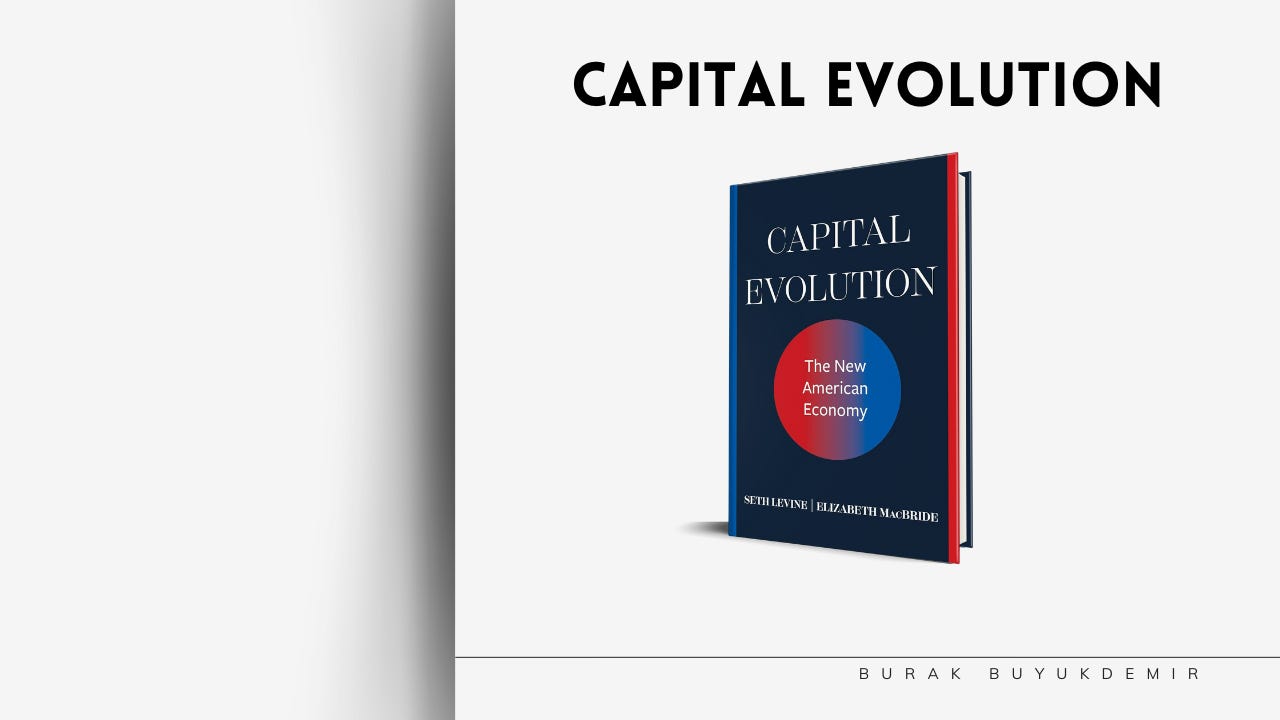🎙️ My Podcast with Seth Levine & Elizabeth MacBride
A simple conversation about opportunity, capitalism, and the world founders are building in
On Friday I had a long, honest conversation with Seth Levine and Elizabeth MacBride, the authors of The New Builders and their new book Capital Evolution. Both books focus on something I deeply care about: how real founders build, what they face, and how the system around them shapes their chances.
I enjoyed this episode because nothing felt theoretical.
Everything was grounded in real life.
Real people.
Real struggles.
Real opportunities.
And real limits.
Here are the main things that stayed with me.
🌍 1. The world is changing faster than we think
Both Seth and Elizabeth said it clearly:
Capitalism is shifting.
Not the word — the way it actually works.
The old “shareholder first” mindset is breaking down.
New expectations are rising.
Founders feel this every day — even if they can’t put words on it.
They call this moment a transition period.
I agree.
Things are moving.
Old rules don’t work.
New ones are not fully formed yet.
For founders, this means:
You need to understand the system you are building inside.
🎧 Listen to the episode
You can watch the full conversation on YouTube and listen on Spotify.
If you want more conversations like this — simple, honest, founder-focused — subscribe to the podcast and stay tuned.
🔍 2. Talent is everywhere. Opportunity is not.
This was the strongest part of the conversation.
Elizabeth talked about the opportunity gap — how where you start still matters more than talent. We see this in Türkiye, MENA, Africa, India, everywhere.
People have skills.
People have ideas.
People have energy.
But the system doesn’t always open the door.
This is why founders feel frustrated.
You are not crazy.
The gap is real.
📉 3. Mobility is going down
Seth explained a simple but painful point:
Economic mobility is shrinking.
It’s harder to move up.
This affects everything — ambition, risk-taking, the ability to start.
If people don’t feel safe, they don’t try.
If the middle class shrinks, the whole startup ecosystem gets weaker.
Founders need an environment where people can afford to dream.
🤝 4. Values matter more than ever
We also talked about the role of values.
Not in a political way.
In a practical way.
Founders who know why they are building have an advantage.
It helps with hiring.
It helps with culture.
It helps with decisions.
You don’t need a long mission statement.
Just clarity.
“What do I stand for?”
“Why am I building this?”
“Who do I want to help grow?”
Simple questions.
Important answers.
🔥 5. The American Dream question
I asked them a direct question:
“If the American Dream is now mathematically very hard, why do we still tell the story?”
Their answer was honest:
Because stories are powerful.
Stories keep people hopeful.
Stories also hide deeper problems.
This is true in every country.
We have our own version of the dream here too.
But dreams must connect to reality.
Otherwise people burn out.
This is not a conversation only about the U.S.
It’s global.
The themes in Capital Evolution affect founders everywhere:
access
class
capital
mobility
long-term thinking
building from emerging markets
creating your own chance
If you are a founder in any emerging ecosystem, this episode will give you a bigger map of the world you are building in.
You will see that your struggles are structural, not personal.
And you will see where the opportunities are moving.



Brilliant pod Burak. Thanks for sharing 🙏
It's interesting how Founders are among the first two experience some of the shifts and changes in the broader macro ecosystem.